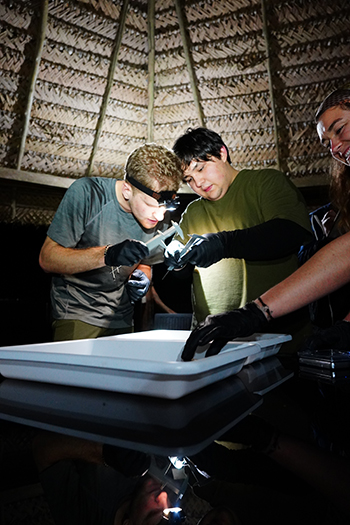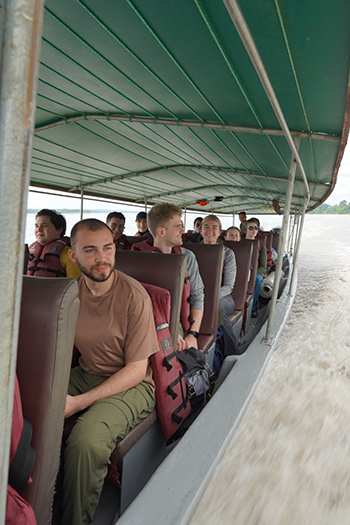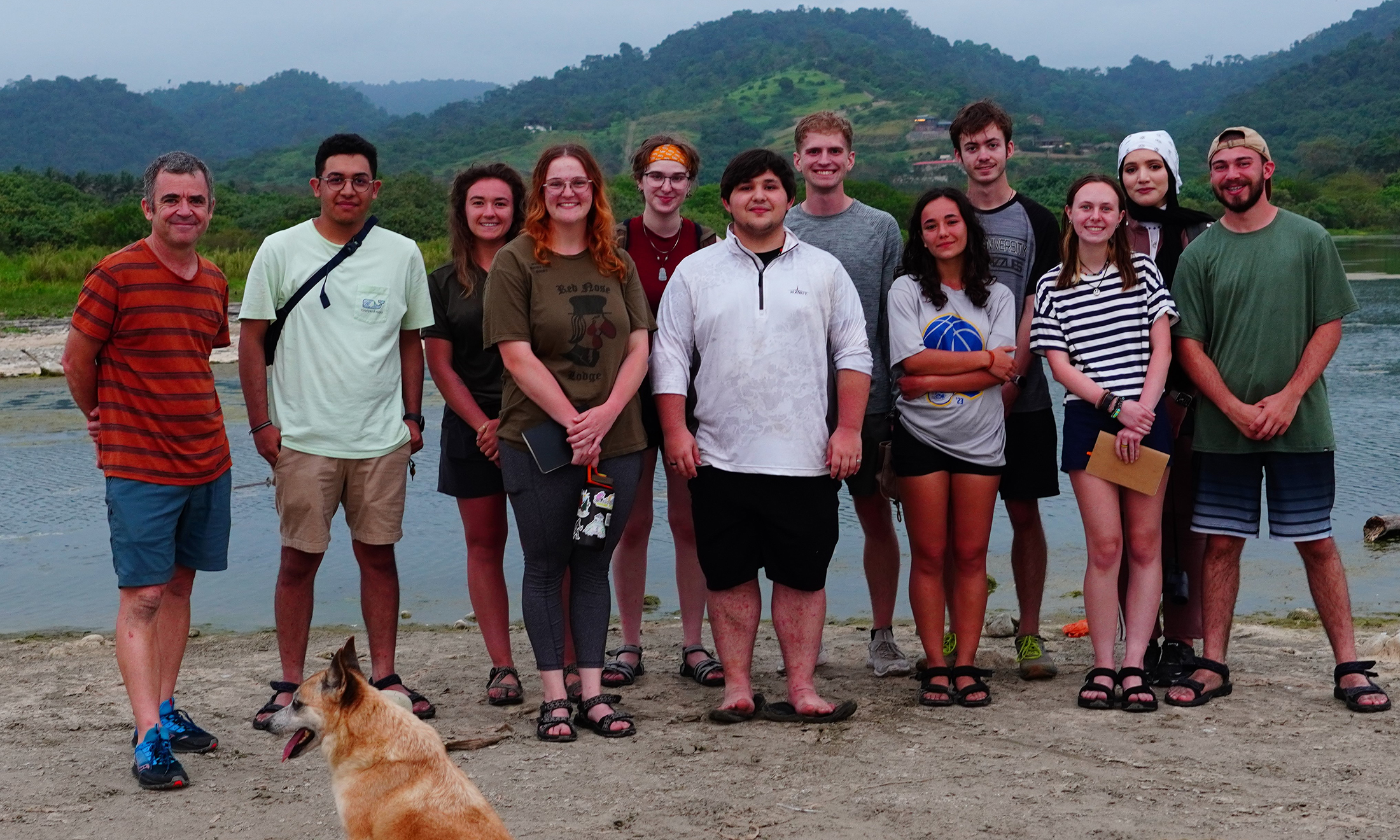Students explore tropical ecosystems in Ecuador
A group of Oakland University students spent part of their holiday break on a study abroad that took them to the diverse ecosystems and landscapes of Ecuador. Situated on the northwestern edge of South America, the country’s mountains, rivers and rainforests make it one of the most biodiverse places in the world – and a fitting locale for one of Oakland University’s tropical field ecology courses.

Students work on estimating the population size of an invasive species, the Giant African Land Snail.
Led by OU Biology Professor Scott Tiegs, the course offered students a firsthand look at the country’s picturesque volcanoes, glaciers, cloud forests, beaches and islands, as well as the variety of plants and animals that call it home.
“These field-based courses really give students insights into how ecosystems function – insights they simply cannot get from a book or a classroom lecture,” said Dr. Tiegs. “The experience also gives students practical life skills, like how to pack for a trip in the tropics, navigate customs and stay healthy while abroad. For some, it sparks a life-long interest in travel and ecology.”
For 10 days, students traveled across Ecuador, visiting and learning about different ecosystems. Days were filled with hiking, canoeing, birdwatching and journaling as they took in sights and sounds of tropical ecosystems.
“The places that most stood out to me were the Sani Lodge and Bellavista (Cloud Forest Reserve),” said Tyler Peterlin, a junior environmental science major, with a specialization in sustainability and management. “Both were covered in densely packed forests which would sing to you at night. Many bizarre species of fungi were seen at the Sani Lodge, including zombifying cordyceps and stinkhorns which attract flies and beetles. Bellavista was full of mossy trees which towered over you and made you feel tiny in comparison."
He added: "It felt ancient and teemed with life. It’s one of those experiences that makes you realize things you see on National Geographic are real and are living outside of a documentary.”
Ph.D. student Lizz Parkinson served as a teaching assistant on the trip, helping lead excursions and answer students’ questions. The experience allowed her to scout locations for her research on light pollution.
“My research area is highly underrepresented in scientific studies so building connections in places like the Amazon and the Cloud Forest is very helpful when planning for future research opportunities,” she said. “It's also great to get experience leading a field course like this for someone interested in going into academia, like myself.”

Students take a moto-canoe down the Napo River, a tributary to the Amazon.
As part of the course, each student researched and presented on a special topic. “Mine was on Páramo, a biome up in high elevations (in the Andes of Ecuador, Peru and Colombia) which boasts lots of grass species and is a key area for water preservation,” Peterlin said. “We were also required to keep a journal with species IDs, along with a daily journal summarizing how our day went. It’s nice to have a log of my experience so I can go back and remember all the exciting memories when I’m older.”
For senior psychology major Osvaldo Gonzalez Osorio, the study abroad was an opportunity to explore new horizons – geographically and academically.
“It was my first time studying abroad and taking a field-based course which made the experience both exciting and challenging. Although I was nervous at first, once you get on the plane and get to know your classmates you begin looking forward to everything that is to come,” he said.
“I am also extremely grateful for the way Dr. Tiegs and our teaching assistant, Lizz Parkinson, treated me, as I was the only student who was not majoring in a biology-related subject, and it had been a long time since I had taken a biology class. I absolutely learned a lot and always felt included. Every memory I have from the trip is connected to at least one classmate, which means every time I remember a moment from the trip I can't help but to also remember my classmates.”
Dr. Tiegs leads BIO 3333 tropical field ecology courses in Ecuador and Costa Rica and is planning a course in Guatemala later in 2023. For more study abroad opportunities, visit oakland.edu/ie/studyabroad. Learn more about opportunities in the Department of Biological Sciences at oakland.edu/biology.


 January 09, 2023
January 09, 2023







